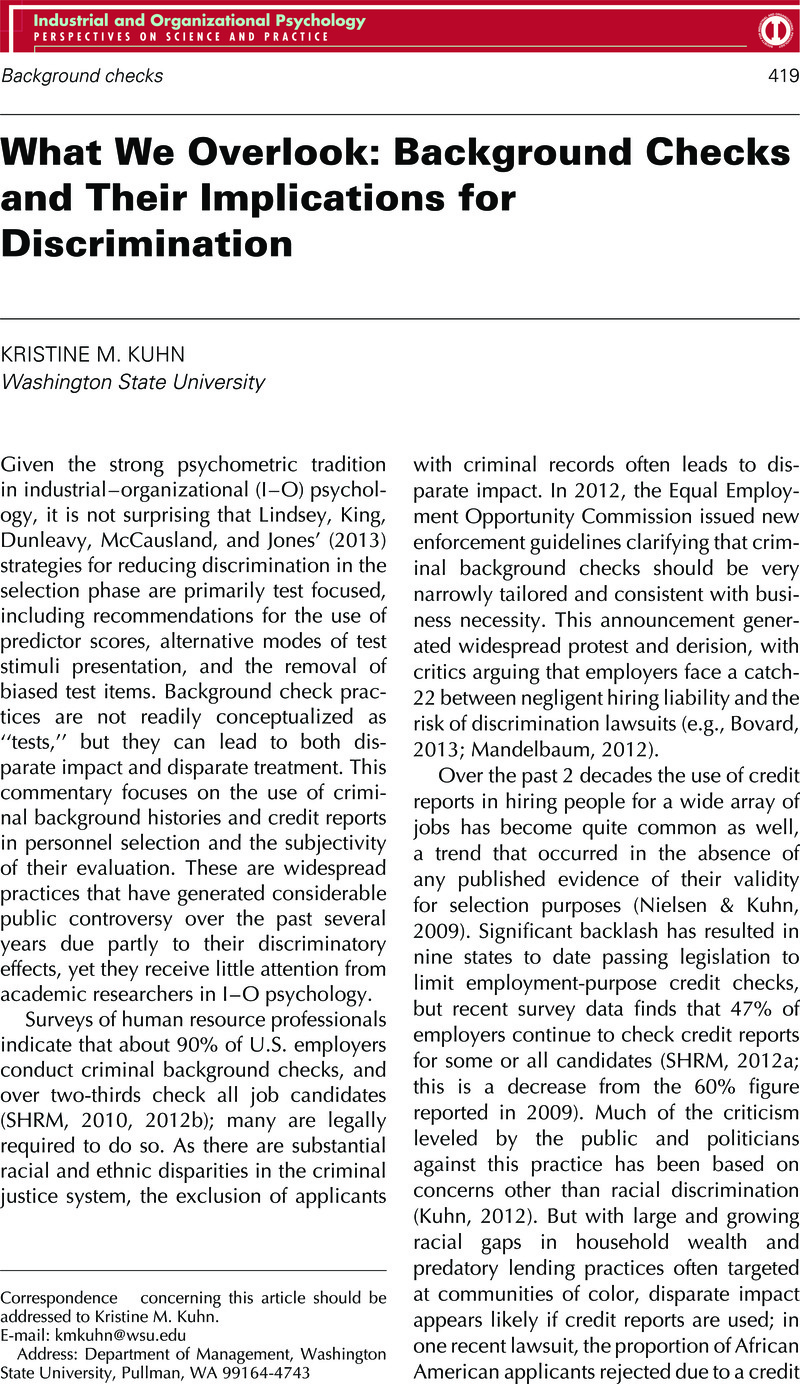Crossref Citations
This article has been cited by the following publications. This list is generated based on data provided by Crossref.
Brody, Richard G.
Perri, Frank S.
and
Van Buren, Harry J.
2015.
Further Beyond the Basic Background Check: Predicting Future Unethical Behavior.
Business and Society Review,
Vol. 120,
Issue. 4,
p.
549.
Kuhn, Kristine M.
2019.
Is it disqualifying? Practitioner responses to criminal offenses in hiring decisions.
Equality, Diversity and Inclusion: An International Journal,
Vol. 38,
Issue. 5,
p.
547.
Kuhn, Kristine M.
2020.
The why and when of background checks: Situational factors moderate effects of criminal and financial stigma.
International Journal of Selection and Assessment,
Vol. 28,
Issue. 3,
p.
283.
Binns, Chelsea A.
and
Kempf, Robin J.
2021.
Background checks: the theories behind the process.
Security Journal,
Vol. 34,
Issue. 4,
p.
776.
Johnson, Laura
Chen, Yafan
Stylianou, Amanda
and
Arnold, Alexandra
2022.
Examining the impact of economic abuse on survivors of intimate partner violence: a scoping review.
BMC Public Health,
Vol. 22,
Issue. 1,
Wingate, Timothy G.
Rasheed, Sabah
Risavy, Stephen D.
and
Robie, Chet
2024.
How does bias enter the employment interview? Identifying the riskiest applicant characteristics, interviewer characteristics, and sources of potentially biasing information.
International Journal of Selection and Assessment,
Vol. 32,
Issue. 3,
p.
399.
Johnson, Laura
Nikolova, Kristina
Hoge, Gretchen L.
and
Postmus, Judy L.
2024.
Exploring Factors Associated with Intimate Partner Violence Survivors’ Use of Financial Safety Planning Strategies.
Violence Against Women,
Vol. 30,
Issue. 5,
p.
1330.



